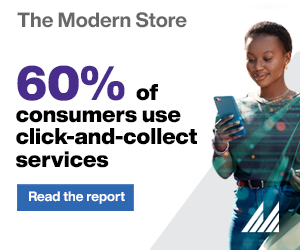VTEX Connect Live: Event explores AI-native commerce
The digital commerce platform provider's agenda sets out the next era of commerce transformation, reports Miya Knights, Retail Technology Publisher
"Performance in Practice" was the core theme for an event hosted by VTEX during Web Summit in Lisbon last week.
The flagship event highlighted the accelerated momentum in advanced digital commerce capabilities among both business-to-business (B2B) and business-to-consumer (B2C) companies operating across the European market.
The provider pointed to the shift of its software-as-a-service (SaaS) digital commerce platform for enterprise brands and retailers toward AI-native commerce. At the same time, retailers also shared candid insights on the real-world challenges of B2C and B2B modernisation during a series of panel discussions.
Opening the event at the Pavilhão Carlos Lopes, Daniel Viana, VP of Solution Engineering for EMEA & APAC at VTEX, set an optimistic tone, highlighting the company's regional growth. "European region stores using VTEX are growing twice as fast as VTEX stores from other markets," he stated.
From composable to AI-native commerce
In emphasising performance metrics from VTEX clients in Europe that are outpacing global benchmarks, Viana credited partners as the engine behind this upward curve: "It is you that push these customers to drive the market and beat record sales month after month."
The company also outlined its strategic product pillars for 2026: agentic commerce, digital B2B reinvention, advanced omnichannel, and retail media.
Viana positioned AI-native commerce as the next competitive differentiator. "Composable has become the new normal. The next leap is AI-native commerce," he said.
He showcased key capabilities, including VTEX's integration of its recently acquired Weni platform to enable automated post-purchase service agents and order management system (OMS) aware workflows. Weni integrates natively with application programming interfaces (APIs) via REST/JSON Webhooks or via a pre-existing application integration.
Accelerating B2B commerce focus
VTEX also showcased a new self-service B2B portal, "built for 'blazing-fast' JAMstack performance," according to Viana. The fully JavaScript-enabled, headless content management system (CMS) infrastructure architecture that decouples the front-end (i.e., markup and client-side JavaScript) from the back-end (i.e., APIs and databases).
Acknowledging the rapid growth of retail media networks, the company also unveiled extensions that enable retailers to monetise first-party data with minimal operational overhead.
For retailers entering the strategic planning phase for next year, these capabilities point toward more autonomous, insight-driven commerce operations. The VTEX message was unambiguous: as retailers prioritise speed, performance, and reduced complexity, digital platform success now hinges on a highly capable partner ecosystem that can execute at scale.
B2B reimagined meets consumer-grade expectations
Building on these themes, a B2B panel featuring Soumaya Hamzaoui, Chief Commercial Officer at digital fast-moving consumer goods (FMCG) Inventory trading platform RedCloud, and Albert Davidoglu, CEO of Romanian frozen and refrigerated products manufacturer and distributor Macromex, explored how wholesale and distribution markets are transforming.
Davidoglu captured the nature of this shift when he stated: "They all moved from simple transaction to experience… what they are experiencing in B2C, they would like to see in B2B."
However, he stressed the operational complexity behind B2B personalisation: "The biggest challenge was customisation for each customer--you can have 1,000 different prices for the same SKU [stockkeeping unit]."
Hamzaoui pointed to the digital capability gap in the emerging distribution networks where RedCloud operates, which include Argentina, Brazil, Nigeria, and South Africa. She said: "Out of roughly 1,000 distributors we have interviewed, around 80% told us they are either using Excel files or software that was developed 20 years ago."
The panel confirmed what many retailers already know: B2B expectations now mirror B2C, but the data, systems, and processes underpinning wholesale remain fragmented.
B2C for the AI era: Realism and readiness
The event also hosted a B2C panel, featuring André Santos, Chief Digital Officer for Salsa Jeans, Ana Rita Silva, Chief Marketing and Digital Officer at Vista Alegre, Tiago Pereira, Amazon Web Services (AWS) Travel and Hospitality Principal Solutions Architect in EMEA, and Rafael Campos, B2C Product Director for VTEX.
This group delivered practical insights — particularly enterprise scepticism versus real impact in AI adoption.
Santos was candid about separating hype from value: "I'm one of the most sceptical persons about AI. I think we are still going through some hype… You have to focus on what will really deliver.”
He stressed that transformation is rooted in fundamentals, not shortcuts: "We are already looking at it and asking: how in the hell are we going to tackle this?"
Customers, channels and journeys
Representing the Portuguese luxury porcelain and crystal manufacturer, Silva emphasised the need for integrated thinking across marketing, commerce and operations, noting that consumers now expect brands to recognise them consistently "across channels, across journeys".
From AWS, Pereira provided a cloud-infrastructure lens on what will actually move conversion and productivity in the next phase of B2C commerce: "We see three pillars: productivity for employees, search becoming chat, and the real-time customer profile."
VTEX's Campos reinforced that AI must sit on strong foundations: "You can't deliver advanced personalisation without solid master data, clean catalogues and reliable stock visibility.”
A strategic shift: VTEX and the MACH Alliance
The event also took place against the backdrop of a major strategic shift earlier this year: VTEX’s decision to withdraw from the MACH Alliance, a nonprofit tech group advocating for composable systems based on a microservices, API-first cloud-native, and headless (MACH) approach.
The company publicly suspended its support, arguing that the alliance’s focus on “extreme freedom” in composable commerce was not delivering the business results retailers expected.
During the event, VTEX’s Daniel Viana and Chief Revenue Officer, Santiago Naranjo, both emphasised that the move reflects real customer feedback rather than a philosophical shift.
Naranjo stressed the importance of helping retailers move quickly and predictably. He highlighted VTEX’s recent win with Manchester City Footbal Club, and told Retail Technology magazine: “Customers want flexibility, but they also want clarity — and they want to be live, not stuck in endless decision cycles.”
Viana agreed, noting that “pragmatic composability” is where performance gains emerge: “Composable is powerful, but only when it’s applied with discipline. We’re focused on what drives performance, not dogma.”
Their perspectives mirror a wider industry conversation: composability remains valuable, whether seen as a rigid rulebook or a set of principles to be applied strategically. But it also highlights how people and processes impact success beyond the technology itself.





